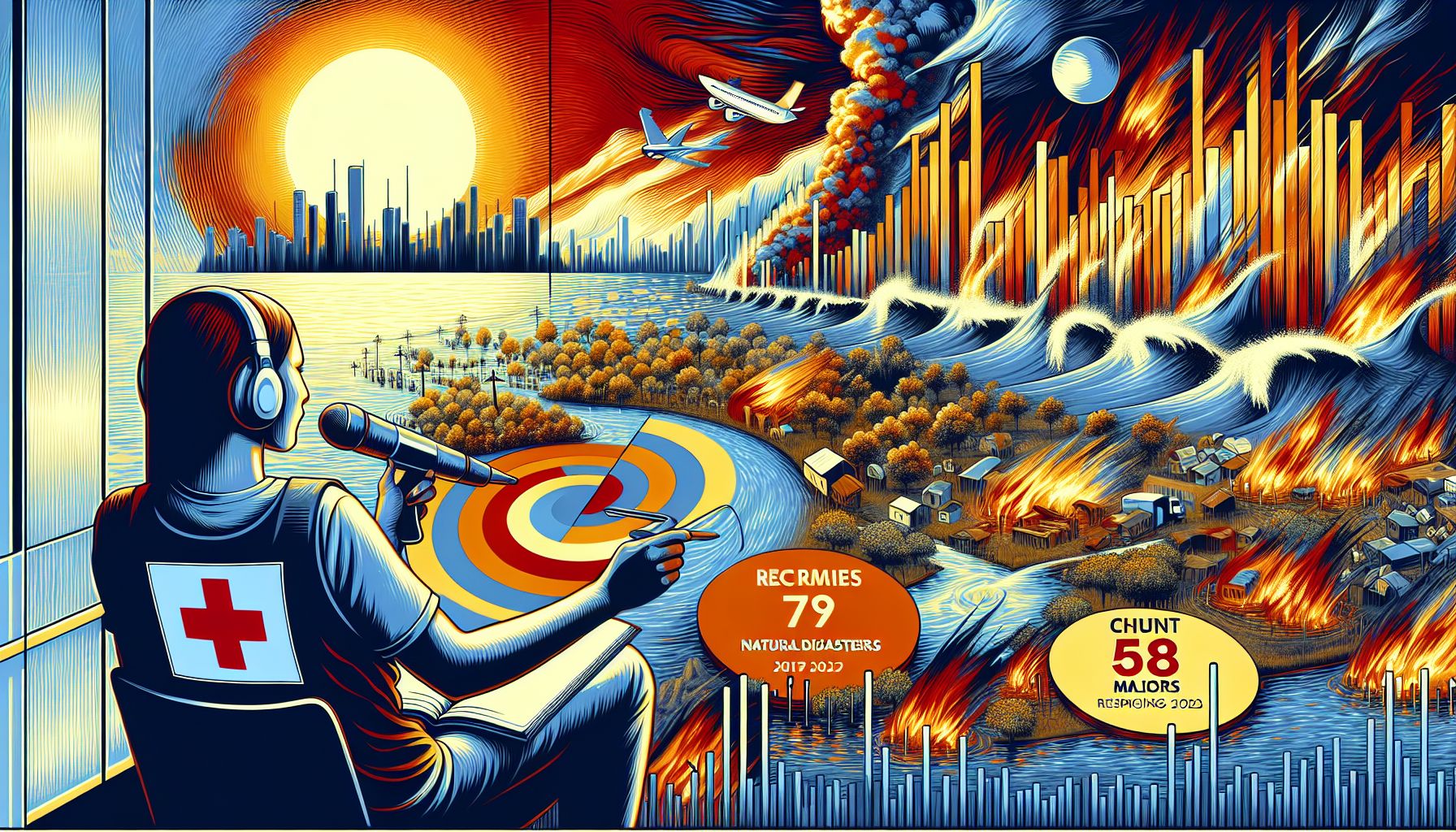2024 Shatters Records: Red Cross Responds to Unprecedented Natural Disasters

Global, Monday, 30 September 2024.
The Red Cross declares 2024 a record-breaking year for natural disasters, responding to 79 major events compared to 58 in 2023. This surge, including floods, storms, and droughts, underscores climate change’s intensifying impact globally, prompting increased humanitarian aid efforts.
Global Impact of Natural Disasters
The Red Cross has had to mobilize on an unprecedented scale this year, with natural disasters wreaking havoc from Central Europe to Southeast Asia. Derk Segaar, head of International Aid at the Red Cross, highlighted the widespread nature of these events, stating, ‘From Sudan to Bangladesh, from Brazil to Central Europe, every continent is experiencing extreme weather.’ This year alone, countries like Chad and Mozambique have been hit multiple times, demonstrating the increasing frequency and severity of such events.
Regional Devastation and Response
In Africa, extensive flooding has left millions in Nigeria, Niger, Chad, and Sudan in urgent need of assistance. The situation in Bangladesh is equally dire, with five million people affected by floods. Southeast Asia faced the wrath of Supertyphoon Yagi, which claimed 200 lives in Myanmar. In Southern Africa, prolonged droughts have led to repeated crop failures in Zambia and Zimbabwe, exacerbating food insecurity in the region. In response, the Red Cross has launched initiatives like Giro 661 to provide essential food and medical aid to those most vulnerable.
Corporate Support and Preparedness
In the United States, the American Red Cross acknowledged the support of its 153 corporate and organizational members during National Preparedness Month. These partnerships are crucial for maintaining readiness and providing swift responses to disasters. By mid-September, the U.S. had already experienced 20 billion-dollar disasters, including tornadoes, wildfires, and extreme heat. The Red Cross’s Annual Disaster Giving Program (ADGP) and Disaster Responder Program, supported by companies such as Amazon, Walmart, and American Airlines, have been pivotal in ensuring that resources are available when disasters strike.
Community Stories and Resilience
Personal stories from those impacted by disasters underline the importance of the Red Cross’s work. Tracey Gayner from Running Springs, California, recounted her harrowing experience during the Line Fire, where she temporarily lost contact with her son and dog. Similarly, Terri Lyons, who evacuated from Big Bear Lake, found refuge and support at a Red Cross shelter during the same fire. In Louisiana, Lawrence and Kerri Harrison sought help after Hurricane Francine devastated their homes. These narratives highlight not only the immediate relief provided but also the ongoing support necessary for long-term recovery.
Future Preparedness and Climate Change
The increasing frequency of natural disasters underscores the urgency of addressing climate change. The International Federation of Red Cross and Red Crescent Societies (IFRC) emphasizes the need for enhanced preparedness and education. In Nigeria and Niger, where floods have caused extensive damage, the IFRC plans to assist hundreds of thousands with health, shelter, and food-security interventions. The organization advocates for greater investment in disaster risk reduction and resilience-building initiatives, which are essential to mitigating the impacts of future climate-related emergencies.

